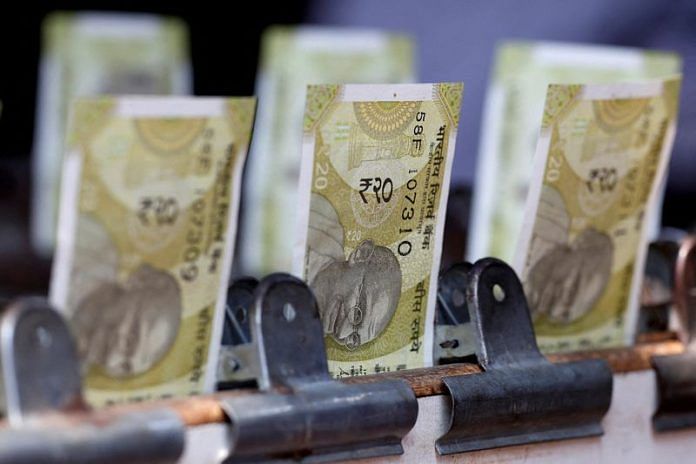By Jaspreet Kalra
MUMBAI (Reuters) – The Indian rupee fell on Monday but posted its best month since June, boosted by strong risk appetite following the US Federal Reserve’s outsized rate cut and economic stimulus measures in China.
The rupee closed at 83.7925, down from its previous close at 83.70, pressured by likely dollar outflows. For the month, the currency logged a near 0.1% rise.
The Federal Reserve’s 50 basis points cut and a slew of stimulus measures announced by China lifted Asian currencies including the rupee over September.
“China’s stimulus measures are boosting global risk appetite, adding further downside pressure on the USD,” Charu Chanana, head of FX strategy at Saxo said in a note.
The dollar index was at 100.3, hovering close to its lowest level since July 2023, and was also on course to log a third consecutive month of decline.
The rupee was also helped by strong inflows with overseas investors pouring nearly $11 billion in local stocks and bonds over the month, according to stock depository data, the highest net monthly inflows on record.
However, the currency’s upside was limited by likely absorption of dollar inflows by the Reserve Bank of India.
The country’s foreign exchange reserves climbed for the sixth straight week to a record high of $692.3 billion as of Sept. 20.
On Monday, dollar demand from custodian banks and importers weighed on the local currency, traders said.
Two large foreign banks were spotted bidding for dollar, likely on behalf of custodial clients, a trader at a private bank said.
Benchmark Indian equity indices, the BSE Sensex and Nifty 50 ended down by nearly 1.5% each, their steepest single day fall in two months. [.BO]
Focus now shifts to remarks from Federal Reserve Chair Jerome Powell due later in the day for possible insights into the future direction of U.S. policy rates.
Interest rate futures are currently pricing in 72 basis points of rate cuts over the rest of 2024.
(Reporting by Jaspreet Kalra; Editing by Varun H K)
Disclaimer: This report is auto generated from the Reuters news service. ThePrint holds no responsibilty for its content.



